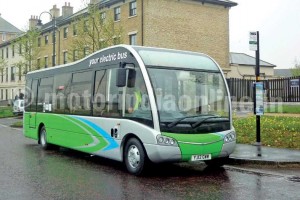
Delhi will host trials for hybrid three-wheelers, mini-buses and buses from August as the Government explores the use of alternate fuel-based transport under a policy regime expected to involve subsidies to incentivize production. A review of “strategic industries” conducted by the Prime Minister, Dr. Manmohan Singh, recently approved pilot projects for use of electric and hybrid vehicles for public transport as they are non-polluting and help conserve fossil fuels.
A ministerial steering committee that includes Delhi’s Chief Secretary will work out implementation modalities for the first pilot project in four weeks.
Pilot projects in other cities will follow with the results expected to help the Government flesh out the national electric mobility mission announced by the Prime Minister earlier this year. The project involves electric vehicles – currently limited by the range such vehicles can run – and hybrids that use conventional fuel as well as a motor driven by a battery which captures energy usually lost during braking and decelerating.
Apart from foreign car makers like Toyota that see a future in hybrids, the Society of Indian Automobile Manufacturers (SIAM) has sought Government support for alternate fuel technology through subsidies. “India has the potential to emerge as a global manufacturing hub for electric and hybrid vehicles,” a PMO press release said.
The other initiatives agreed on include development of a 70-100 seater commercial aircraft. In a bid to address scepticism over the ambitious venture, given the fate of the proposed light combat aircraft, the Government intends to work out a collaboration for the engine at the earliest, sources said.
The argument advanced is that China is also on its way to developing a commercial aircraft and that India needs to do the same in the next five to seven years, or it may end up buying from its neighbour and remain a technological laggard.
The meeting decided that India should set a steel production target of 300 million tonnes for 2025. State firms are set to lead the way as they are expected to find it easier to obtain land, water and other clearances.
At present, India exports both sponge and coal and ends up as a major importer of steel. SPVs will also be formed to assemble land and approvals and will then be offered for takeover by investors through a bidding process.